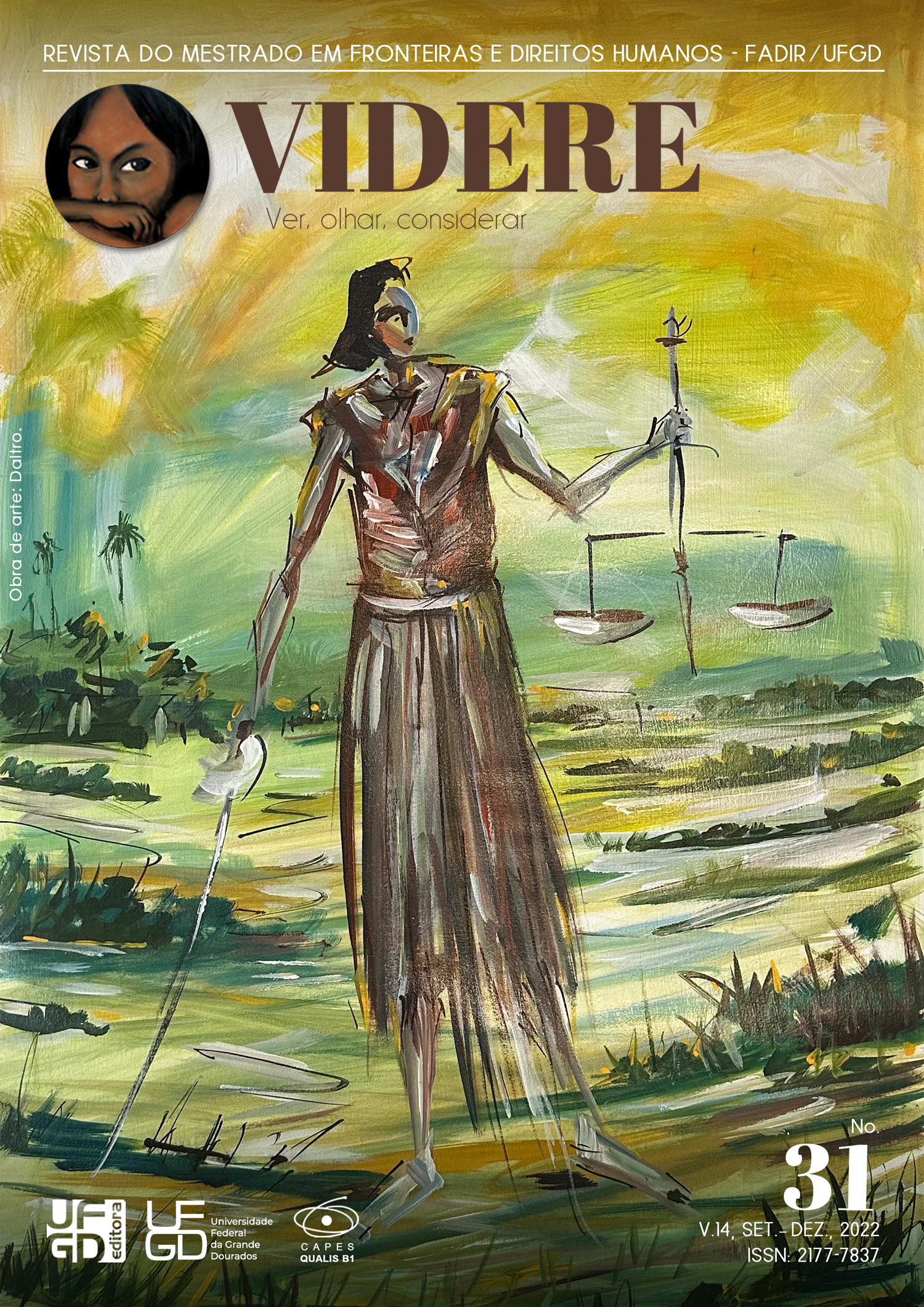SUSTAINABILITY AND HUMAN RIGHTS: FORM UNRULY CONSUMERISM TO CONSCIOUS CONSUMPTION
DOI:
https://doi.org/10.30612/videre.v14i31.16949Keywords:
Keywords: Sustainability; consumption; common house; economy; paradoxAbstract
Abstract: This article presentes a critical theological refletion on the relationship between Sustainability, Human Rights and consuption. It confronts the consumption necessary for human existence, denied to a large part of the population, with consumerism, the latter as a patology that leads to environmental depredation and intriguing paradox: based on a Christian framework of dignity, development and progress, especially inspired by the Second Vatican Council and the Social Teaching of the Church, it confronts a capitalist economy that kills people and destroys the ecosystem, while today’s society has all the conditions to guarantee the dignity of all humanity, at the same time coexisting a multitude of miserable people, excluded from Fundamentam Human Rights and with the naturalization of the destruction of nature, compromissing the diversity of lives. Another possible economy: the solidarity economy, based on selfmanagment and which proposes solidarity production, fair trade and conscious consumption.
Downloads
References
BAUMAN, Zygmunt.; DONSKIS, Leonidas. Cegueira moral: a perda da sensibilidade na modernidade líquida. Rio de Janeiro: Editora Zahar, 2014.
BETTO, Frei. A mosca azul: reflexão sobre o Poder. Rio de Janeiro-RJ: Rocco, 2006.
Bíblia Sagrada. Tradução Ecumênica da Bíblia: TEB. São Paulo: Editora Loyola, 1994.
BOFF, Leonardo. Saber Cuidar: ética do humano – compaixão pela terra. Petrópolis-RJ: Editora Vozes, 15ª ed. 2008.
BOFF, Leonardo. O cuidado necessário. Petrópolis-RJ: Editora Vozes, 2ª ed. 2013.
BOFF, Leonardo. Ecologia grito da terra grito dos pobres: dignidade e direitos da mãe terra – edição revista e ampliada. Petrópolis-RJ: Editora Vozes, 2015.
CNBB. Conferência Nacional dos Bispos do Brasil. Texto base da campanha da fraternidade de 2023: fraternidade e fome – dai-lhes vós mesmos de comer – (Mt 14,16). Brasília-DF: Edições CNBB, 2022.
CNBB. Conferência Nacional dos Bispos do Brasil. Texto base da campanha da fraternidade ecumênica de 2016: casa comum, nossa responsabilidade – quero ver o direito brotar como fonte e correr a justiça qual riacho que não seca (Am 5,24). Brasília-DF: Edições CNBB, 2016.
CONCÍLIO Vaticano II. Constituição pastoral do concílio Vaticano II gaudium et spes: sobre a Igreja no mundo de hoje. São Paulo: Editora Paulinas,10ª ed. 1998.
FRANKIL, Viktor E. A presença ignorada de Deus. São Leopoldo-RS: Editora Sinodal, 10ª ed. 2007.
GALLAZZI, Sandro; RIZZANTE, Anna Maria. Envia teu espírito e haverá criação: reflexão sobre ecologia e bíblia. São Leopoldo-RS: Editora CEBI, 2017.
GLAISER, Marcelo. Criação imperfeita: cosmo, vida e o código oculto da natureza. Rio de Janeiro-RJ: Editora Record, 4ª ed. 2010.
HANSEN Jean Poul. Fome, economia e partilha: três chaves de leitura para a CF-2023. Artigo publicado no DOSSIÊ da Revista Encontros Teológicos | Florianópolis | V.37 | N.3 | Set.-Dez. 2022 | p. 687-701. PDF disponível em: https://facasc.emnuvens.com.br/ret/article/view/1749/1418 . Acesso em: 13 de fev. de 2023.
PAPA Francisco. Carta Encíclica LAUDATO SI’ (LS) – Sobre o Cuidado da Casa Comum. Brasília-DF: Edições CNBB, 2015.
PAPA Paulo VI. Carta Encíclica de sua Santidade o Papa Paulo VI Populorum progressio; sobre o desenvolvimento dos povos. São Paulo: editora Paulinas, 12ª ed. 1990.
POCHMANN, Márcio. (Org.). Desenvolvimento, trabalho e solidariedade: novos caminhos para a inclusão social. São Paulo: Editora Cortez, 2022.
SADER Emir. A nova toupeira. São Paulo: Editora Boitempo, 2009.
WOLFF, Elias. Espiritualidade do diálogo inter-religioso: contribuições na perspectiva cristã. São Paulo: Editora Paulinas, 2016.
Downloads
Published
How to Cite
Issue
Section
License
Copyright (c) 2023 Revista Videre

This work is licensed under a Creative Commons Attribution-NonCommercial-ShareAlike 3.0 Unported License.
Authors must accept the publication rules when submitting the journal, as well as agree to the following terms:
(a) The Editorial Board reserves the right to make changes to the Portuguese language in the originals to maintain the cultured standard of the language, while respecting the style of the authors.
(b) Authors retain the copyright and grant the journal the right to first publication, with the work simultaneously licensed under the Attribution-NonCommercial-ShareAlike 3.0 Brazil (CC BY-NC-SA 3.0 BR) that allows: Share - copy and redistribute the material in any medium or format and Adapt - remix, transform, and create from the material. CC BY-NC-SA 3.0 BR considers the following terms:
- Attribution - You must give the appropriate credit, provide a link to the license and indicate whether changes have been made. You must do so under any reasonable circumstances, but in no way that would suggest that the licensor supports you or your use.
- NonCommercial - You may not use the material for commercial purposes.
- Sharing - If you remix, transform, or create from material, you must distribute your contributions under the same license as the original.
- No additional restrictions - You may not apply legal terms or technological measures that legally restrict others from doing anything that the license permits.
(c) After publication, authors are allowed and encouraged to publish and distribute their work online - in institutional repositories, personal page, social network or other scientific dissemination sites, as long as the publication is not for commercial purposes.



















